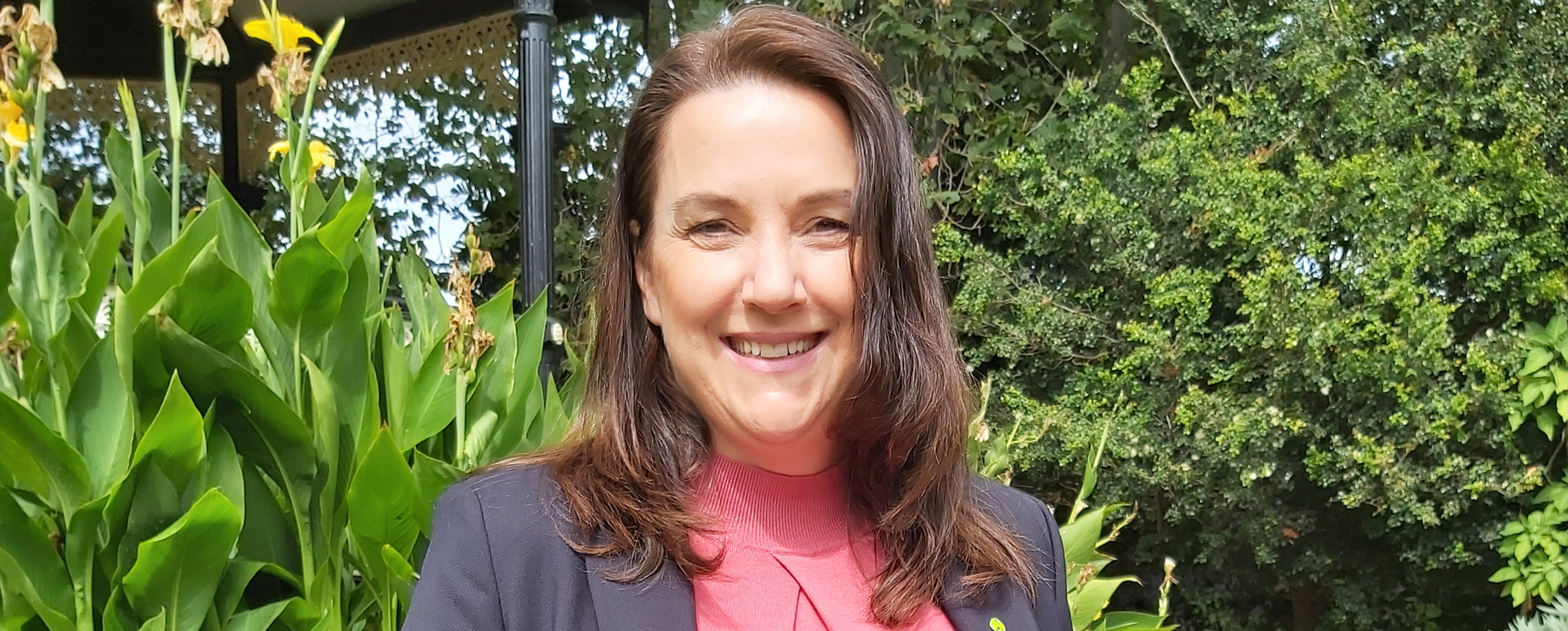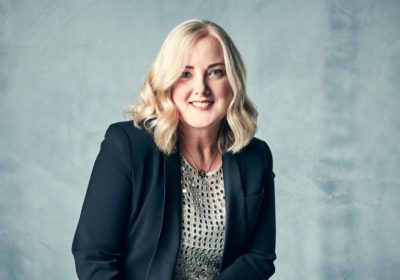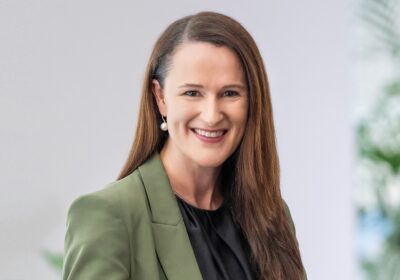
- Author: Jessica Mudditt
- Posted: December 7, 2022
Breaking Down the Silos Between Finance & Sustainability
Clare Luehman, CFO at Greening Australia will do whatever it takes to get up to speed on new responsibilities – from studying thermodynamics and reputation management to improving her writing skills. She explains why being the CFO of Greening Australia combines all her strengths into a role rich with purpose.
Clare Luehman’s career in finance began the way it typically does for a promising graduate: she joined ‘Big Four’ firm KPMG as a senior accountant. She remained there for three years before joining ASX-listed companies and held a variety of senior roles.
After having children, Luehman was looking for a more family-friendly project role.
“Accounting tends to revolve around month-ends, and childcare does not. I needed something that was part-time, and I needed to be able to control my deadlines a bit better,” says Luehman.
She took a “sidestep” and went to work at Australian fertiliser and chemical manufacturer multinational Incitec Pivot Ltd, where she created and led the company’s sustainability and carbon strategy. This involved advocacy work and setting up targets that cut across issues relating to energy use, the environment and indigenous employment.
Luehman got herself up to speed on aspects of the role that would be new to her. She did a certificate on reputation management, which was a communications-based certificate and improved her writing skills. She also taught herself the guidelines for environmental reporting on emissions.
Luehman even studied thermodynamics while her young children napped.
“Before I could work out how to reduce emissions, I needed to understand how we were creating them,” she says. “I also needed to show the engineers that I could speak enough of their language so that I would know if they weren’t telling me the whole truth.”
It was at a time when sustainability reporting was not as robust as it is nowadays – and it was certainly nowhere near as robust as financial reporting. Over the past decade, increasing interest from investors and superannuation funds has led the creation of structured guidelines and working definitions for concepts such as natural capital and environmental impacts.
“There’s a concept called ‘Lazy Tax’, which are expenses that a CFO forgets about because you think you can’t do anything about them…. This is often money being spent on things like energy, water and waste removal. If you can impact those, you will save money as well as helping the planet. It is something you can do as a CFO that is absolutely tangible.”
Clare Luehman, CFO | Greening Australia
“There is now far more robustness in the way that that companies report, because investors have demanded that certain information is presented in a similar style,” she says. “There are a lot more questions being asked, and I think that’s important for improving trust in the market and preventing greenwashing.”
Luehman spent the next eight years in the role, which gave her the opportunity to break down many of the silos that exist between finance and sustainability functions.
“People used to say to me that for a sustainability person, I was good with numbers. I found that quite amusing and would just sort of thank them,” she says with a laugh.
When carbon pricing was introduced in Australia in 2012, Luehman wrote Incitec’s first sustainability report and began trading carbon units. The company was building a major chemical facility in Queensland, and Luehman convinced the leadership team to invest millions of dollars into emissions technology that would reduce its carbon emissions.
Luehman was disappointed when the carbon trading laws were repealed in 2014.
“It had been years and years of work, and it felt like the world was on the cusp of great change, with similar schemes starting in other countries,” she says. “I believed that it was going to help decarbonize a lot of manufacturing. But momentum was lost, and only now does it feel as though it is resurging with a lot of investment in renewables.”
Luehman returned to ‘traditional finance’ for several years before she was approached by national environmental organisation Greening Australia, with a mission to rebuild nature by connecting community, economy and environment in ways that benefit all. She became the CFO of the environmental enterprise in August last year.
Greening Australia undertakes science-based restoration at scale, planting millions of native trees and shrubs to restore ecosystems and help create healthy and productive landscapes where people and nature thrive. Through innovative nature-based solutions, Greening Australia brings together landholders and public and private funders in tackling two of the biggest issues of our time – biodiversity loss and climate change. Luehman also sits on the board of Canopy, Greening Australia’s environmental markets business which produces high integrity credits, including carbon credits generated under the environmental planting methodology.
“It is an amazing role because it means that I get to work in finance, but I’m using the knowledge that I gained in leading sustainability and carbon,” she says. “In this post-COVID world, everyone’s looking for purpose and ways to make a difference. That’s what I get to do every day.”
By 2030, Greening Australia aims to have established half a billion native plants across 330,000 hectares of land, sequestering 3.3 million tonnes of carbon per annum. These ambitious targets align with international and national commitments and the scale that is needed to conserve Australia’s unique and special wildlife. Increasingly this vital work is being funded through a strategic shift towards market-based products and services that can deliver impact at scale by leveraging the growing demand from businesses looking to both reduce their carbon emissions and deliver benefits for nature.
Luehman believes that CFOs at companies across all industries can help to drive positive change.
When Luehman was reporting to the CFO at Incitec Pivot, she got involved in investor relations and arranged an investor relations day that had a focus on sustainability. She also urges CFOs to consider the level of waste being generated at their company.
“There’s a concept called ‘Lazy Tax’, which are expenses that a CFO forgets about because you think you can’t do anything about them,” she explains. “This is often money being spent on things like energy, water and waste removal. If you can impact those, you will save money as well as helping the planet. It is something you can do as a CFO that is absolutely tangible.”
Over the years, Luehman has observed that CFOs mistakenly believe that they must choose between the bottom line and saving the planet. Recent research supports the idea that companies which focus on sustainability also generally produce better profits. Along with this there is a shift in shareholder expectations along with a plethora of other drivers such as the Task Force on Nature Related Financial Disclosures (TNFD) that means that companies face increasing demands to understand and reduce their environmental impacts. “But it does require you to be creative, focused and strategic. You need to use all your talents and knowledge,” she says. “I would say that while it isn’t easy, it is certainly possible. Start by making some quick wins with low hanging fruit – find a program where you can reuse your waste, for example. Then, over time, build up to achieving more complex goals.”






